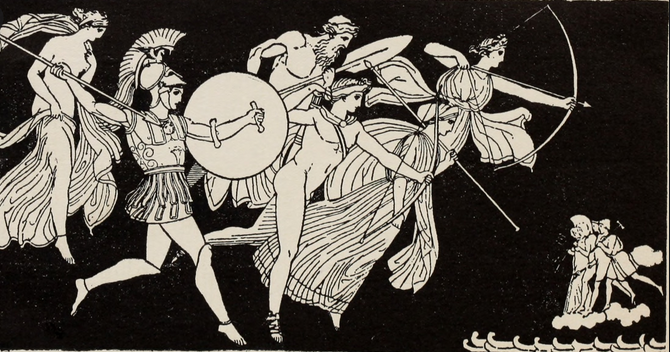Scholars once doubted that pre-literate peoples could ever have composed and recited poems as long as the Odyssey, according to Matthew Wills from JStor Daily… Support our news coverage by subscribing to our Kindle Nation Daily Digest. Joining is free right now!
Who was Homer? Or, to put it another way, who wrote Homer? The identity of the Greek poet was a big question among nineteenth-century scholars. The Analysts (yes, they had a name) thought that multiple authors made up “Homer.” The Unitarians (not the religion), meanwhile, thought Homer was a single, masterful poet. The notion that long and involved poems like the Iliad and the Odyssey might have been recited by pre-literate peoples before being committed to writing was too fantastical a notion to be believed. How could anybody remember so many lines of poetry?
Enter Milman Parry, who burst on the scene in the late 1920s and became a professor at Harvard University in 1929. Parry used textual analysis, anthropology, and field work to show that pre-literate or semi-literate peoples could, in fact, recite long poems. Inspired by the Slavicist Matija Murko, who attended his thesis defense at the Sorbonne, Parry headed to the hills of what is now called Bosnia in the early 1930s. There he used aluminum disks to record pre-literate bards, guslari, who performed epske pjesme, epic oral songs. These bards used “the very same kinds of structures and patterns that Parry had found in the texts of Homer,” according to the late oral-communications scholar John Miles Foley.
“Instead of construing the Iliad and the Odyssey as either conventionally authored works or pieced-together editions, Milman Parry portrayed them as the products of a generations-long process of composition in performance,” Foley wrote. This helped revolutionize the way we understand the oral origins of epic poetry.
Parry died tragically in 1935, cutting short a brilliant career at the age of thirty-three. His work was carried on and expanded by his graduate student, Albert Lord, who could only get back to Yugoslavia after the end of World War II. The Parry/Lord “Oral Theory” about the origins of the Iliad and the Odyssey is now accepted by most everyone, wrote Foley, and is applied to “more than 150 different oral traditions from six of the seven continents and from ancient times through the modern day.”
Read full post on JStor

